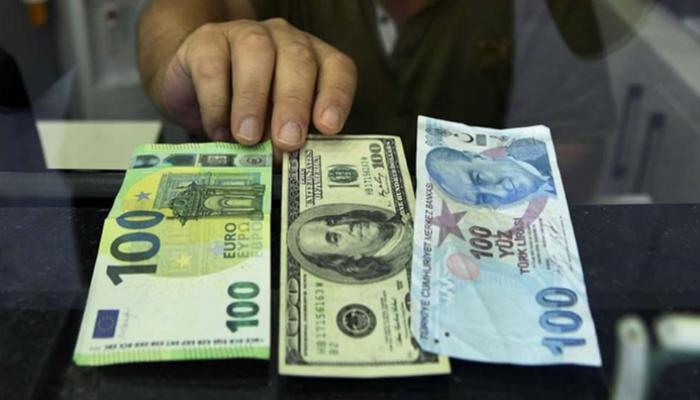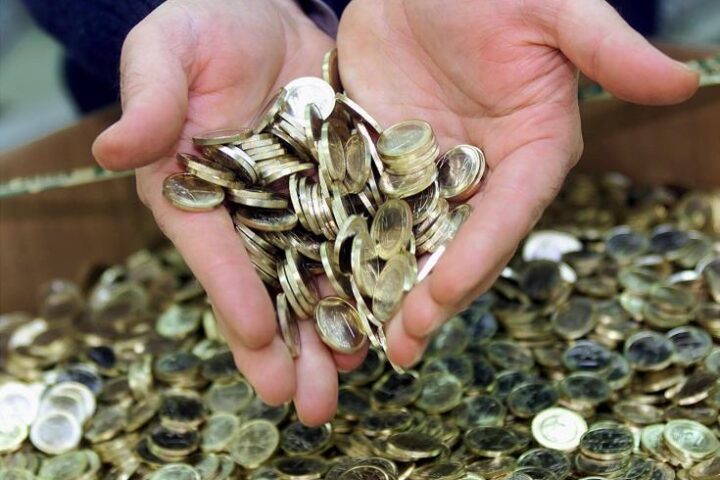Turkish Cypriots are eyeing a transition to the euro as the tumbling Turkish Lira is destroying their economy as they see their earnings vanish while inflation spirals.
As prices for essential goods spike, economists in the Turkish occupied north favour ditching the Turkish Lira for the euro, however, but this would politicians taking Turley head-on.
The Lira has been breaking unwanted records, as Turkey’s President Recep Tayyip Erdogan is adamant about “fighting the war on interest rates to the end”.
This has seen the Turkish Cypriot economy crushed under the collapse of the Lira, with food-price inflation reaching 37.4% in September.
The main opposition party, the left Turkish Republican Party CTP, has long campaigned to transition to the euro.
Economists argue a transition to the euro would be technically possible, but a political decision should be taken.
In comments to Yeniduzen, professor of Economics at the Eastern Mediterranean University in occupied Famagusta, Mustafa Besim argued the only obstacle to transition to the euro is the lack of political will to convey the message to Turkey.
“The jacket simply does not fit. This message has to be conveyed to Turkey,” said Besim commenting on the north using the Turkish Lira as their currency.
He said the Turkish Cypriots feel the heat more than Turkey as imports are tied to a foreign currency, namely the USD and the euro.
“The Turkish economy has the capacity to absorb the depreciation of the TL.
“But we can’t do that here because we have a small economy.”
Noting that technically the transition to the euro is feasible, this will however need political ‘guts’.
“We know the answer to this riddle; this depends on the administration.”
He added instability in Turkey, the melting of the Turkish Lira and the inflation resurgent with the low interest rate policy make things even harder for the Turkish Cypriot community.
Besim said recovering from the crisis created by the falling Turkish Lira won’t be easy.
“We had a huge devaluation in 1994, a banking crisis in 2000, a currency crisis in 2001, but then we were lucky.
“The Annan plan period and Turkey’s stabilization helped us to recover in a short time.
“But now there is no such developments in our cards.
“Economists have had their say.
“Now politicians need to take the decision.
“The ‘TRNC’ is in the Turkish Lira zone, our relations with Turkey are undisputed, it is our supporter our guarantor.
“However, either Turkey fixes the problems, or we will have to find a jacket that fits. Because we are melting away.”
Foreign currency
In comments to the Financial Mirror, economist Mertkan Hamit said that 60% of Turkish Cypriot deposits are in foreign currency, while 37% of loans taken out by Turkish Cypriots are denominated in a foreign currency.
“The only one that does not accept foreign currency is the public sector. The three leading sectors – property, higher education, and tourism – already use the euro.
“The important question is about the political will which would require financial assistance from Turkey to be in euros as well.
“I think this crisis will enhance the process, but the important question is who is going to demand this from Turkey”.
Hamit further argued that practically adopting the euro is feasible and has been done before by countries, not even in the European Union.
“Since unilateral adoption of the euro happened in Montenegro and Kosovo, I believe this could also be possible for us, allowing us also to ease the inflationary pressure.”
He added that, however, there are many actors in this process, including the Republic of Cyprus and the European Central Bank.
“But since we are talking about a very small economy in comparison to the Eurozone, combining a strong will for structural reforms, gradual adoption of the euro would be a possibility.”
Hamit said adopting the euro is one of the talking points of the pro-reunification camp.
“It’s worth remembering it is not the first time the TL is facing such a problem. The banking crisis played a significant role when 65% of Turkish Cypriots voted YES for the Annan Plan (2004).”
“I cannot say that history will repeat itself, but I like Mark Twain’s aphorism that follows ‘History does not repeat itself, but it often rhymes’,” said the economist.
He believes continuous pressure brought on by the collapse of the Lira in the north will leave its mark on the Turkish Cypriot political scene, especially with a general election in January.
“I am expecting long term impacts over the politics and the relationship with Turkey.
“If Turkey pursues its economic agenda, further polarisation between the ordinary people and the ruling parties will emerge.”
The Lira traded at its lowest ebb on Thursday at 15.52 to the euro; the currency has lost 22% of its value since 2020 and is 94% weaker than at the end of July 2018—just before the first sharp depreciation in the Lira’s history.
The Lira is also hovering near its lowest ebb to the US Dollar of 13.9095, recorded last week. On Thursday, the Lira stood at 13.8750 versus the US currency. Overall, it has lost 46% of its value to the US currency this year.










